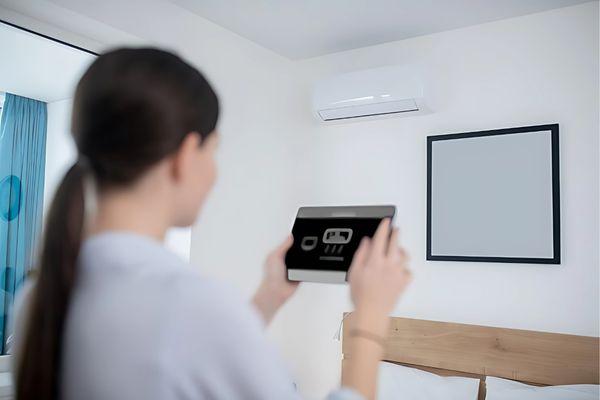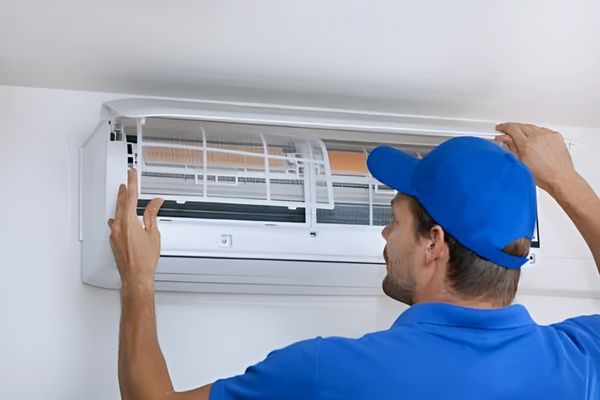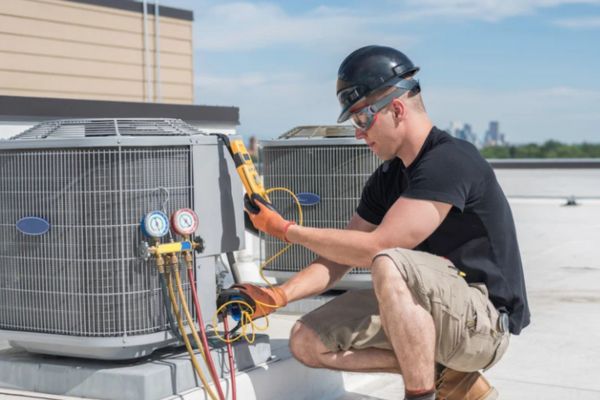
DIY Maintenance Tips
While HVAC systems are complex, you can perform several easy maintenance tasks to ensure they run efficiently. These simple actions can improve airflow, prevent breakdowns, and extend your system’s lifespan.
Start by changing air filters regularly—this keeps airflow unobstructed and reduces strain on the system. Another quick tip is to clean vents and ensure they are not blocked by furniture. Monitoring for airflow changes in your home is also essential, as it could signal early problems like clogged ducts or blocked vents.
Energy-Saving Strategies
Heating and cooling can be a significant portion of your home’s energy consumption, but there are ways to reduce these costs while keeping your home comfortable. Implementing energy-saving strategies helps lower your bills and increases your system’s efficiency.
Consider installing a programmable thermostat that adjusts your home’s temperature based on your daily schedule. Sealing ducts and insulating your home are also effective ways to maintain your home’s temperature without overworking your HVAC system. Additionally, upgrading to energy-efficient HVAC units can result in significant long-term savings.
Seasonal Preparation
Each season places different demands on your HVAC system, so preparing accordingly is vital. Performing seasonal checks ensures your system is ready for peak usage during summer or winter.
In winter, inspect your home’s insulation and ensure that windows and doors are properly sealed to prevent heat loss. For the summer months, clear any debris around your AC unit and make sure that vents are unobstructed to allow for efficient cooling. Preparing your system before the season starts can prevent costly repairs and ensure reliable performance.

Identifying HVAC Problems Early
Early detection of HVAC issues can save you money and prevent inconvenient breakdowns. By recognizing common warning signs, you can address minor problems before they escalate into major repairs.
Look out for unusual noises from your HVAC system, which may indicate a mechanical issue. Also, monitor your home for uneven heating or cooling—this could signal problems with your ductwork or thermostat. Addressing these issues early can avoid more significant problems down the road.
Long-Term HVAC Investment Tips
Investing in your HVAC system now can result in long-term savings and improved comfort. Whether through equipment upgrades or regular maintenance, focusing on the future can help your home stay efficient and comfortable.
Consider replacing your old HVAC system with a high-efficiency unit, which can significantly reduce energy costs. Additionally, look for energy rebates and government incentives to offset the cost of new equipment.
Finally, investing in maintenance plans from a trusted HVAC provider can extend your system’s lifespan and keep it running at peak efficiency for years.
Conclusion
Understanding the basics of HVAC maintenance, energy-saving strategies, and seasonal preparation can help homeowners keep their systems running smoothly and efficiently. By addressing minor issues early, performing routine upkeep, and considering long-term investments, you can improve indoor comfort, reduce energy costs, and extend the life of your HVAC system. Home Star is your top directory for connecting with trusted HVAC professionals who can guide you through installation, repair, and maintenance for your HVAC needs.


